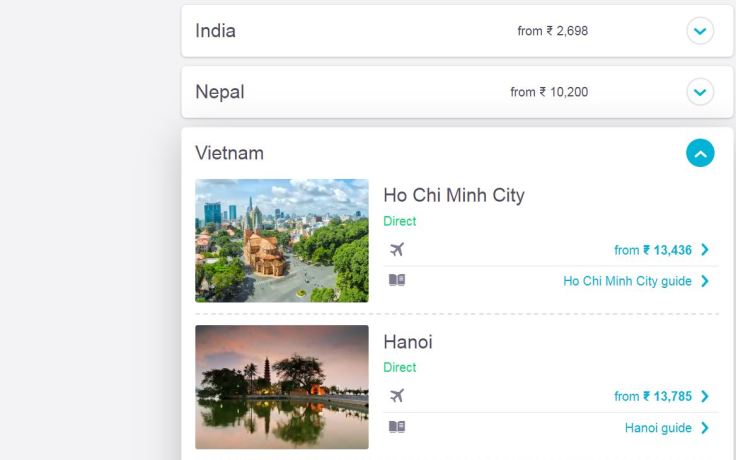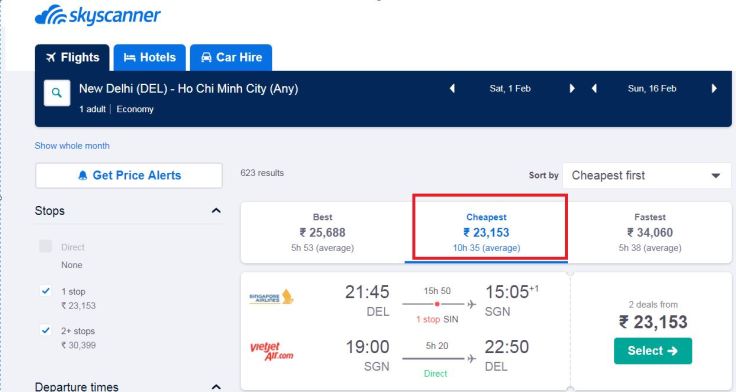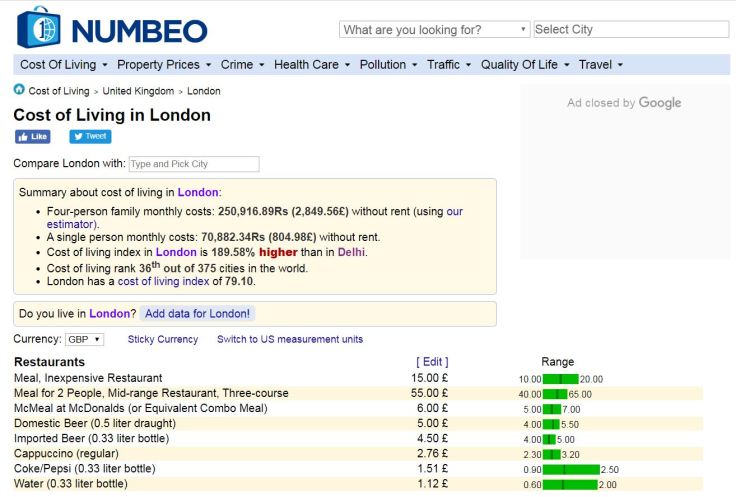I elaborately want to talk about the budget, our favorite subject and always been an area of concern.
15% of my monthly income goes to my travel fund account every month. Whether you earn less or more, you can always wish to travel and make that happen by saving in a year.
For instance, if you earn Rs.50000 or $700 per month, you save Rs. 7500 or $105 every month.
7500*6 months= Rs. 45000 or $626.
Congratulations! you can now travel to dirt cheap countries like Thailand for 5 days, inclusive of all fares, accommodation, and sightseeing.
Your budget may always vary, depending on your lifestyle because you never want to travel wretchedly. Therefore, you need to have provisions for extra money and credit cards.
Let’s look at some of the tips while booking air tickets and hotels, consuming most of your budget. It is not just a tedious task but also unpredictable in terms of fluctuating prices. If you sort this out, half of the job is done.
1. Booking Airfares
1. Choose any site you find more useful and user-friendly. (I choose Sky scanner and happyeasygo as they merely are search engines).
2. Open web browser in incognito mode (Private window) especially, if you are repeatedly going to visit the site.

3. Search with the “City name” & “Everywhere”, and “Whole month” from the calendar.

4. Browse the city you wish to visit. Expand the drop down menu.

6. See the listing and prices offered by various airlines and choose the cheapest one.

7. Cheapest months to travel, Jan-March, July-Sept in a year.
8. Make a booking in weekdays, not weekends.
Popular sites: Skyscanner, Happyeasygo, make my trip, goibibo and many more…
2. Booking Hotels
1. Look for new hotels- Recently opened hotels are relatively cheaper and can offer great discounts and deals. While booking, you can check hotel ratings or search through the internet to read about their time of origin. A bit of research is not bad.
2. Look for hotel chains- Many hotels have various establishments across the country. Such hotels can offer you a better deal.
3. Coupon Codes and Affiliations- There are numerous websites offering coupon codes, free wallet cash or discount on the first visit. All that means is- never lose an opportunity to save.
4. Serviced apartments- I recommend Airbnb, which not only gives you a homely experience but also lists prices of all homes/apartments in a city. It can ultimately help you to navigate a home within your budget. Be wise to choose sites with better interface rather than a site with few filters.
5. Keep checking the hotel rates every month for your dream destination.
6. Use credit card points and extra wallet cash from previous bookings.
7. Talk to hotels directly and try negotiating the prices, if that helps.
8. Be creative while choosing a location. It can help you save on bucks.
Popular sites: Make my trip, booking.com, and Airbnb.
Other factors of consideration:
3. Food
Another subject is food, which is the hardest thing to estimate when you travel abroad. Average food cost per meal is $15- $20 when you dine abroad. It could be more when you include extra water bottles, sodas, and even alcohol to your meals. What we are discussing is a matter of utmost importance. so let’s plan it.
1. When you make a hotel bookings, look for inclusions such as breakfast, dinner or lunch.
2. See what you like eating most and carry packed food.
3. Eat fruits and salads, which is cheapest and the healthiest option. You essentially need vitamins during the course of your travel. It can save you one-time meal cost.
4. Understanding the food value whatever you are consuming. Eating in abundance would not give you sufficient nutrition, but a plateful of salad and bread loaf could be enough to get you going.
5. Take small meals and eat six times a day, this will curb your need of having a full-time meal every time at any expensive restaurant. I am sure you can find ways to eat little, which is healthier and cheaper. It may not be even $10 in a day, but having meals at restaurants would cost you $10 minimum for a one-time meal.
6. Look for service apartments where you can cook for yourself. Try to be self-sufficient.
4. Local transport
Never lose the opportunity to get travel cards. We mostly spend 3-4 days in a city and these cards usually cover all your travel expenses for that period. Even, some of the travel cards have an option to give access to all local transport such as buses, metros, trams, etc- All in one card. Hitch-hiking is your choice and quite popular among aspiring travelers nowadays, but please ensure that it is safe for you.
5. Sightseeing and activities
This decision is left at your discretion. Our interests and tastes always differ. Museums, parks, ancient ruins would always look the same and could be an expensive affair. Moreover, you would exhaust your whole day by exploring each one of them. How about trying scuba diving, hot-air balloon, and water sports. Look for things which can give you incredible experiences. Spend wisely unless you have a special interest in art, culture, and history.
6. Shopping
Look for things which you need the most, other than souvenirs, alcohol, chocolates which you would always buy some. By any means, you should have some extra budget for your shopping. Do not travel miserably.
7. Track your expenses
Track your travel expenses daily. There are numerous options to download various expense tracking apps nowadays. Use an expense tracker and currency converter.
Budget estimation
I found an interesting website on the internet which displays the most current cost of living trends. You need to select a city name and the country to fetch the price of grocery items, fruits & vegetables, transportation, utilities, sports & leisure, clothing & shoes, dining at restaurants, and rent per month. You can also do statistical analysis of your budget using their expense model, if you are living as an expat in a city. This is a useful resource to estimate our travel costs.
https://www.numbeo.com/cost-of-living/


One thought on “Budget Travel tips”